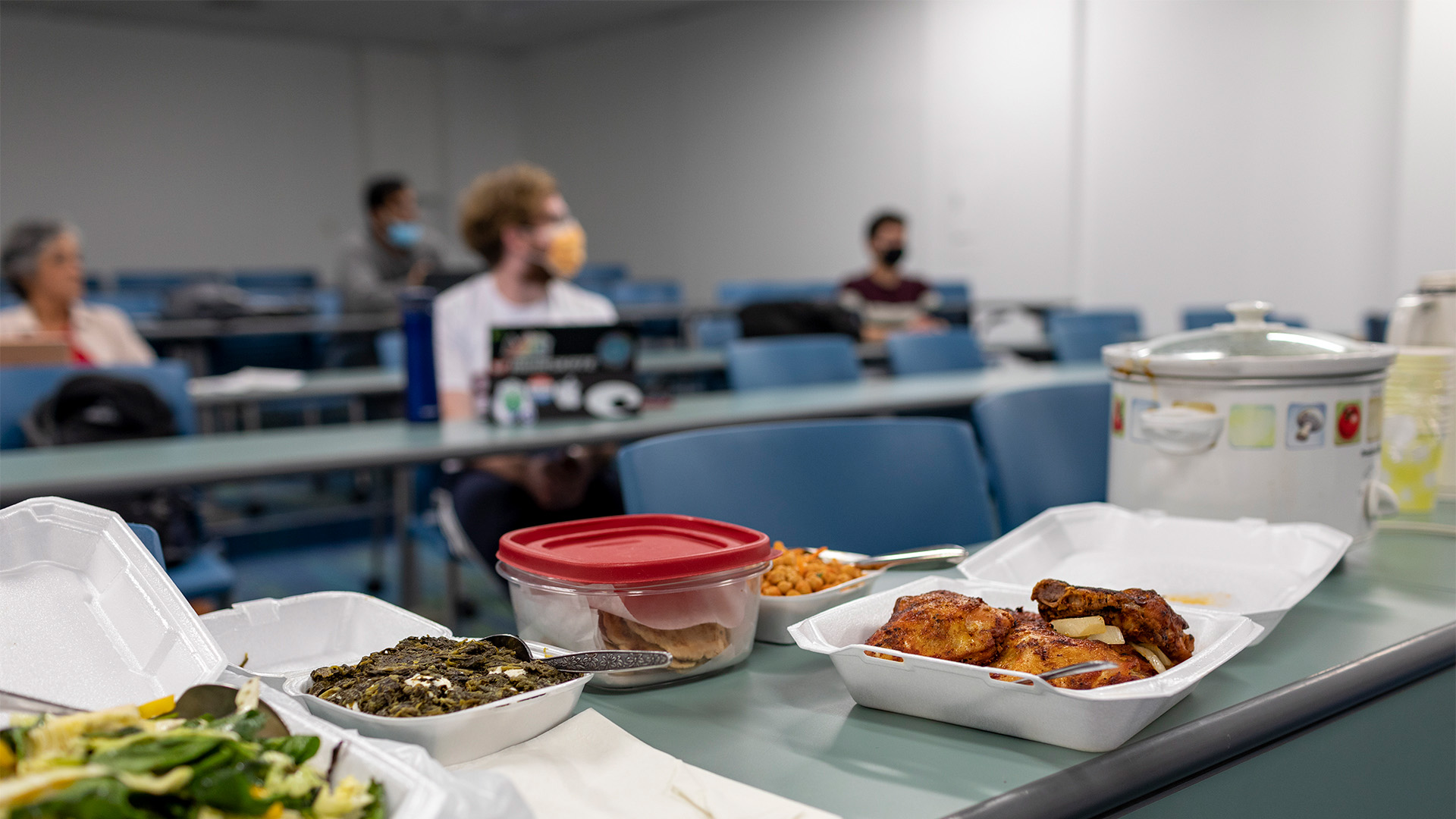- Future Students
- How to Apply
- Visit UHCL
- Admitted Students
- Tuition, Costs and Aid
- Degrees and Programs
- Contact Admissions
- Current Students
- Class Schedule
- Academic Calendar
- Advising
- Events
- Library
- Academic Resources and Support
- Student Services and Resources
- Alumni
- Lifetime Membership
- Alumni Events
- Update Your information
- Awards and Recognitions
- Give to UHCL
UHCL students study food sustainability ahead of trip to Oman
December 13, 2021 | UHCL Staff

Food security and environmental sustainability are complex issues in which global production and logistics systems and diet play critical roles. Achieving a healthy and sustainable food future is among the world's most urgent concerns, and 10 University of Houston-Clear Lake students will be traveling over 8,000 miles to learn how Oman, a small country on the southeastern coast of the Arabian Peninsula, has been innovating toward this goal.
Associate Professor of Anthropology and Cross-Cultural Studies Maria Curtis, who is among three faculty members leading the trip, said she'd written a proposal for a grant to do a study abroad program that aligned with U.S. State Department areas of concern around food security and environmental sustainability.
"There are not as many study-abroad options in the Arab world, and the State Department encourages programming that offer students to have a diverse set of options," she said. "Food security and environmental sustainability are of global concern, and because I developed this program to cover those topics as they relate in the Arab world, our proposal stood out."
In keeping with one of the class's overarching themes of food security, Curtis asked her students to make and share an Omani dish and explain its carbon footprint and its overall sustainability in class. Over the fifteen-week semester, students learned about Oman's different agricultural crops and regional foodways, reading about regions and sites they will visit on their trip.
Meat is a staple of diets across the Middle East North Africa region where roughly 80 billion cubic meters of water, or 264 liquid gallons are used annually. Geraldo Hernandez said he chose to slow-roast lamb using traditional methods and recipes because locally sourced lamb in Oman is more sustainable than imported beef. To produce the one kilo of lamb he brought to share with the class, he visited several local specialty halal markets.
"There are a lot of issues with overgrazing, climate change, and the lack of water," he said. "The water footprint for local meat is much lower than imported, and water is just too scarce. That's why accessibility to red meat is a problem."
According to the Water Footprint Network, 8,763 liters of water are required to produce one kilo of lamb, compared to 15,415 to produce one kilo of beef.
Casey Gomez said she made marak dal, made of red lentils and spices like turmeric, coriander, cardamom, cooked with ghee and tomato paste, and Monserrart Montalbo made Zanzibari pilau, made of basmati rice and cardamom, cinnamon, cloves and coconut milk. Zanzibar was once part of the Omani Sultanate and the cuisine of Oman reflects that relationship.
Curtis said Oman was a "melting pot" for food, with many fusion dishes and many desserts with ingredients like cashews, dates, and almonds. "It's a very cosmopolitan place, particularly the capital city of Muscat," she said. "Our group will be visiting many farms and markets, speaking to farmers, and trying different foods all over the country."
Senior Lecturer of Environmental Management in UHCL's College of Business Kathy Garland, who is among the trip's faculty co-leaders, said she was also taking the class along with the students and learning more about conservation from the Islamic or Arab perspective. "While I know something about these topics in the Middle East generally, and learned more in 2019 when we hosted the joint Sultan Qaboos-UHCL conference on Energy and Environmental Stewardship in partnership with the Omani Embassy, I needed to take Dr. Curtis' class. As a trip co-leader, I have to be familiar with what students learned in the class to inform my own contributions when we are in-country."
Faculty and students also enrolled in Arabic language classes, made possible with funds from the State Departments' Increase and Diversify Education Abroad for U.S. Students grant.
"It's fascinating to me, because I teach sustainability and resilience here. I'm looking forward to going to a place where that isn't controversial," she said. "Conservation and a sustainability mindset are facts of life in Oman. They are as excited to have us come as we are to go there, and learn about how to contribute to what they're trying to do and how to engage the public around these issues. We struggle with that in the U.S. and in Texas."
Assistant Professor of Psychology Georgina Moreno is also a faculty co-leader for the trip, and will be collecting information to apply to creating better methods of recruiting Latinx students to study abroad programs. The State Department IDEAS capacity-building grant helped launch this program, and funding from the Center for Faculty Development and IHAPS will contribute to building new partnerships and support faculty research after the completion of the trip.
This is the fourth international study trip to Oman that Curtis has organized in the last six years. Students depart for Muscat, Oman on Jan. 3 and will study and travel for about two weeks.
For more information about UHCL's Education Abroad opportunities, go online.






